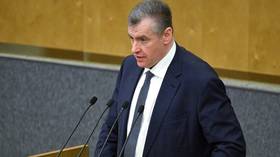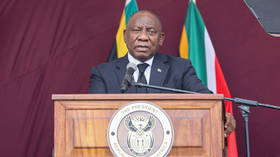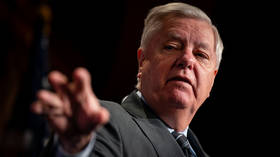Coronavirus crisis offers football a glimpse of a brighter, more egalitarian future
In a world dragged into uncharted territory by the coronavirus pandemic, football can emerge from the crisis as a more equitable force for good – but only if the game’s elites choose to do the right thing.
Extraordinary times have called for extraordinary measures as the Covid-19 outbreak continues to wreak global havoc. Governments of all stripes have announced emergency measures to prop up crisis-hit economies: in the US, a leadership initially skeptical over the seriousness of the outbreak has pushed through a stimulus package worth a mind-bending $2 trillion; in the UK, a Conservative chancellor has announced far-reaching measures that even ardent leftists have found it hard to quibble with.
Similarly desperate steps have been repeated far and wide, and football – as with sport as a whole – has not found itself immune from the Covid-19 carnage. With leagues on hold and major tournaments postponed, questions loom large over how apocalyptic the post-coronavirus landscape will be. Will it be littered with clubs which have failed to survive the viral onslaught? Will the billions in TV revenue still flood in as purse strings are tightened? Will hard-hit fans still have the funds to fork out for already over-priced tickets and merchandise? Will we see the era of $250 million transfers come to an end?
Many immediate and pressing financial issues are already being answered as football mobilizes to fight the Covid-19 war. In Germany, the Bundesliga’s four Champions League teams – Bayern Munich, Borussia Dortmund, RB Leipzig and Bayer Leverkusen – have created a €20 million ($22 million) solidarity fund to help other clubs lower down the pyramid; in England’s second-tier Championship, players, coaching staff and senior management at Leeds United have offered to defer their wages to ensure that 272 full-time non-football staff can continue to be paid; in Spain, Real Madrid’s iconic Santiago Bernabeu home will be used as a storage and distribution center for essential medical materials.
There are countless similar stories from clubs elsewhere.
Individually, players and managers have also stepped up. Lionel Messi, Cristiano Ronaldo Pep Guardiola have each donated €1 million ($1.1 million) to the cause, while others have likewise made substantial contributions.
Also on rt.com Lionel Messi and Pep Guardiola both donate 1 MILLION EUROS to fight coronavirus outbreak in SpainYes, there have been blatant ploys to protect self-interest (see West Ham co-chairman Karren Brady's calls for the Premier League to be immediately declared null and void, which would conveniently see her relegation-threatened team retain their top-tier status), but from continent to continent, football has acted amid the threat to the public health, making money and facilities available at a time of unprecedented crisis.
And yet it has taken a pandemic of unprecedented proportions to carry out steps and raise issues which the game has long been crying out for.
Wealth is disturbingly concentrated at the top of the football tree, a fact glaringly exposed by the current crisis as big clubs, engorged by lucrative TV cash and sponsorship money down the years, appear set to ride out the storm while smaller ones struggle for their very existence.
READ MORE: Football needs to watch out, or risk descending into a coronavirus-induced civil war
The coronavirus-induced crisis has also laid bare the reality that footballers are not the superheroes they are so often portrayed to be; instead, we have real-life equivalents working in emergency wards around the globe. Yes, Messi and Ronaldo have been generous with their donations, but the sums handed over are just a fraction of what the pair earn in a year (in Messi’s case, estimated to be $140 million last year, for Ronaldo, just over $127 million). Like other big-earning stars around the world, if they have their wages trimmed as a result of the Covid-19 outbreak, would that be such a bad thing?
Also on rt.com Virtue-signaling celebs preaching to the poor to stay home from their mansions is just as insufferable as COVID19Likewise, former Bayern Munich president Uli Hoeness has suggested that there will be no more $100 million transfers after this crisis has run its course. But should we spare even a millisecond of thought for the fat cat agents who have amassed riches to rival those of the players they represent?
Football clubs and organizations love proclamations of unity and hashtags espousing social causes, yet they have long fleeced fans and shown scant disregard for those at the lower levels of the game.
A better distribution of wealth from the top of the football pyramid all the way down is something that should be more deeply engrained in the sport. Some may wonder that if clubs can act for the greater good now, then why can't they do that the rest of the time?
The ramifications from the coronavirus crisis could be deep and long-lasting, but if there is any silver lining, it is that football's elite may finally take off their blinkers and look beyond their narrow bubbles of self-interest.
They have been far too rich for far too long. It’s time to redress the income imbalance rife in the game, and while it may be born of chaos and suffering, the coronavirus crisis could be the best hope in a long time of making that happen.
By Liam Tyler













